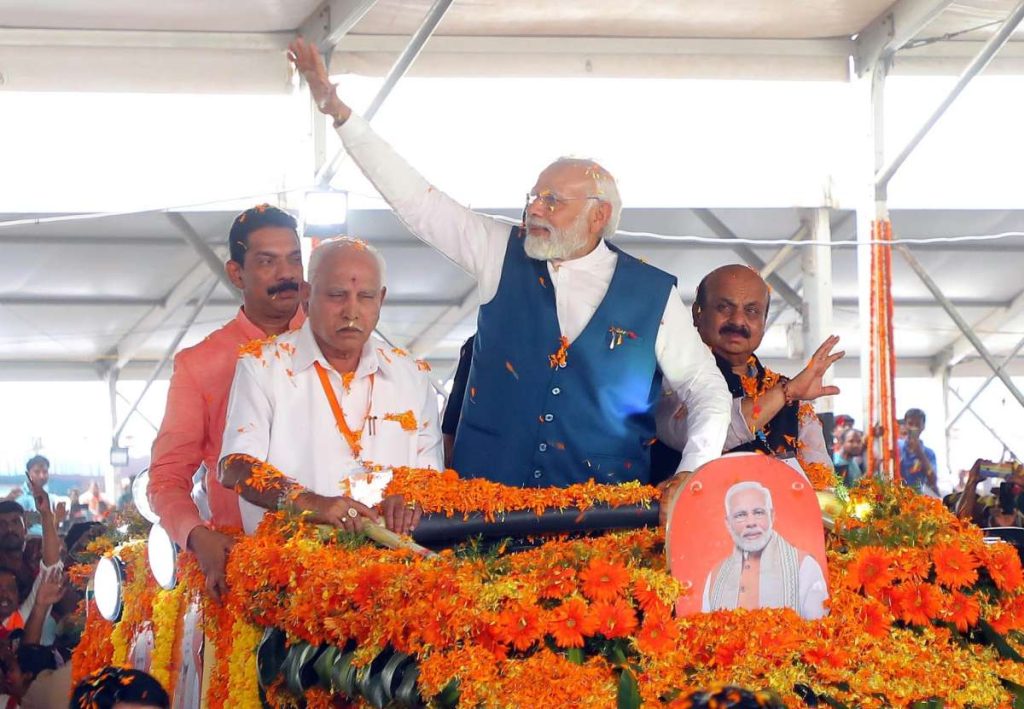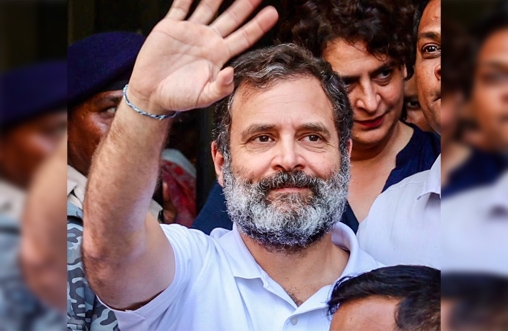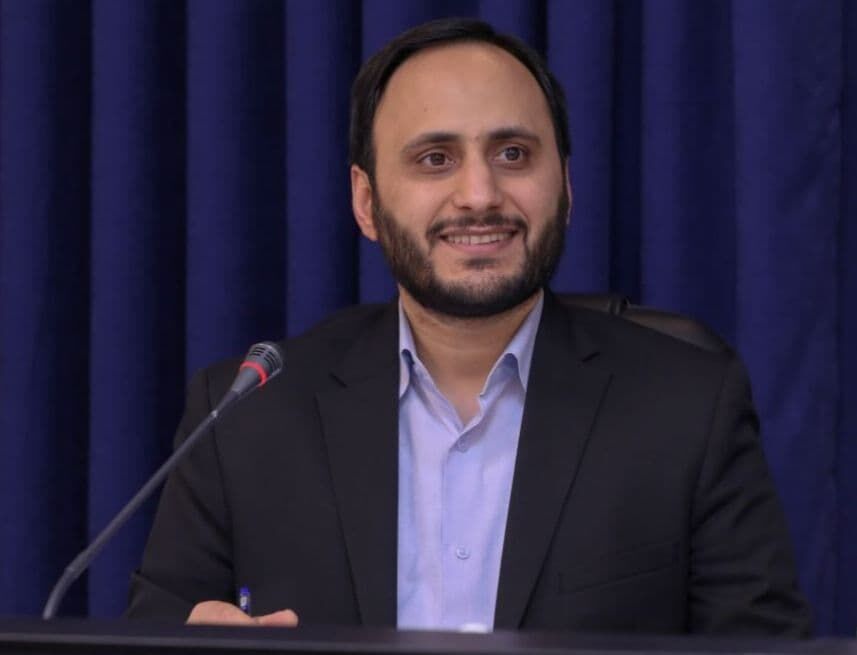How many colonial-era laws will the present critics of such laws discard if they return to high office, when in the past, they held on to each such law and used (or rather, misused) them with zest? … writes Prof. Madhav Das Nalapat

Pratap Bhanu Mehta is a greatly respected thinker. He has (in the Indian Express) penned an op ed to the effect that there are traces of vindictiveness within the high echelons of the BJP. An example cited is the manner in which the colonial-era law relating to criminal defamation was used by a little-known complainant to allege that an entire backward caste community was defamed by a remark made by Rahul Gandhi. The Congress leader’s subsequent ouster from Parliament has come in handy for foes of Prime Minister Modi, as they have been touring the world warning that democracy is being made extinct in India.
Their argument is that the Prime Minister, assisted by his closest associates, has systematically drained the governance system in India of the effectiveness of the checks and balances designed within the constitutional framework to ensure the absence of authoritarian tendencies within the executive branch. That the BJP has lost several state Assembly elections since 2014 and is looking at an uphill Assembly contest in the party’s southern citadel of Karnataka seem at odds with the picturisation of a rampaging ruling party that subdues all other parties by whatever means that comes to hand.
The maximum sentence the Surat court passed on the criminal defamation suit brought against Rahul Gandhi was a surprise. The complainant portrayed remarks made about the likes of Nirav Modi and Lalit Modi as an attack on OBCs, which implies that both are from that politically consequential segment of Indian society.
Neither Lalit nor Nirav Modi are OBCs. For another, such complaints fail to take account of the fact that parliamentary democracy as a process is usually noisy, sometimes even rising to the level of cacophony, yet is infinitely preferable to the absence of jousting narratives in an authoritarian state. Given the Surat precedent, a blizzard of similar cases can be expected against a multitude of politicians, including several in the BJP.
Although triggered by a court verdict that in turn was based on the laws of the land (much of which continues to date back to the British era), Rahul Gandhi’s removal from the rolls of the Lok Sabha has only added abundant fuel to the multiplying number of claims being made that India is no longer a democracy. The most affected by the perception of such an extreme view of the state of Indian democracy is Narendra Modi himself. Despite this being the case, it has been assumed without any substantiation that the events preceding the removal of Rahul from the Lok Sabha’s list of MPs were choreographed by the Prime Minister himself.

It is illogical to place responsibility for the Surat complaint and its after-effects on the shoulders of the very individual who is at the greatest risk of reputational damage from the disqualification of Rahul Gandhi. It has become the fashion for critics of Modi to have everything that goes right in India pass unmentioned by them, but to assert that anything going wrong is because of PM Modi. All the blame for problems real and imagined are pinned on a single individual. The Prime Ministers of the UK or India, or the President of the US, does not have the overarching power within a country that a genuinely authoritarian leader such as CCP General Secretary Xi Jinping has.
India is a democracy that has numerous elected authorities, many competing against and opposing the BJP itself. Witness the astringent manner being resorted to by Delhi Chief Minister Arvind Kejriwal when he talks about PM Modi. Which is the authoritarian state where such public criticisms are a commonplace against the Head of Government? Calling India and its contentious, clamorous democracy “fascist” is to be unfair to the people of our country, who have kept the flame of democracy alight for 75 years and counting.
Shakespeare asked “What’s in a name?” According to those objecting to his remarks, the implication made by Rahul Gandhi was that those having a particular surname shared the same proven traits (including presumably the ability to charm bank managers into handing over unsecured loans worth hundreds of crores of rupees) of Nirav Modi and Lalit Modi.
There may be a few citizens in India having “Gandhi” as a surname, and yet whose moral character may be the opposite of the saintly example set by the Mahatma. Would it be correct to assume that because of his surname, Rahul Gandhi exhibits the same behavioral patterns as any other individual who has the same surname? Obviously not. Rahul’s quip about the Modi surname must have caused some of the members of his own party to wince.
There is the charge of “persecution of political opponents” that is repeatedly levied against PM Modi. Nine years after Modi became PM, the only charge of criminal conduct brought against Rahul related to him and his mother acquiring controlling shares in the company owning the National Herald. And this charge was initiated not by the Government of India but by Subramanian Swamy, who had nothing to do with the BJP when he first brought the National Herald matter to court.

Whether it be in the case of the National Herald matter or in the very few cases lodged by the present government against VVIPs who held prominent governmental positions during the UPA period, these have not even been fast-tracked. The cases linger on and on, in the way usual in this country. Several matters that took place during 2004-14, such as manipulations in price of essential commodities and equity stocks, or in the running and ruining of several PSUs, have yet to witness punishment of the actual VVIP perpetrators.
These were those who during the UPA era bore responsibility for departments that exhibited several examples of misgovernance. During the UPA decade, among many other matters of concern, there was the data co-location scam in the NSE, the sudden death of reports of petroleum discoveries in Indian coastal waters, and the way in which Air India and other PSUs became basket cases. Yet who are the UPA-era VVIPs directly or indirectly responsible for such situations that have been punished for such actions? None. A strange definition of “vindictiveness”, indeed.
This may come as a surprise to the New York Times, the Manchester Guardian or other media outlets that claim that all was brightness in India until 2014 but became dark thereafter, but there are many among Modi’s admirers who believe not that the Prime Minister has been excessively harsh with his principal political opponents, but who instead wish that the broomstick of accountability be wielded more vigorously by him.
Those who have bulldozed into the dust and dirt of poverty and death countless citizens through wilful misfeasance, those who have terrorized many for decades through goons and guns, need to be held to account, and watch their ill-gotten gains vanish in a cloud of bulldozer-created dust. Their ill-gotten constructions need to either be transferred to public use or face the consequences of the breaking of the law by their owners.
How many colonial-era laws will the present critics of such laws discard if they return to high office, when in the past, they held on to each such law and used (or rather, misused) them with zest?














